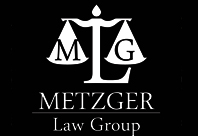Does the Sophisticated Intermediary Defense Apply in Toxic Tort Cases? - Part III of IV
by Raphael Metzger, Esq.
Introduction
Among the defenses asserted by defendants in toxic tort cases is the so-called sophisticated intermediary defense. See, generally, Centola, G., “Manufacturers Often Are Able To Rely On The ‘Sophisticated Intermediary Doctrine to Defend Against Plaintiffs’ Failure-To-Warn Claims.” Mealey’s Emerging Toxic Torts Vol. 7, No. 21, pp. 27-35 (February 5, 1999).
Five years ago one state supreme court observed that “judicially created doctrines such as the ‘sophisticated purchaser’ and ‘bulk supplier’ defenses have become familiar maxims of product liability law.” Macias v. State of California (1995) 10 Cal.4th 844, 42 Cal.Rptr.2d 592. While it is true that the “sophisticated intermediary” defense is often bandied about, the fact remains that it has not been accepted in most jurisdictions and that it has little, if any, application in toxic tort cases.
This is the third of a four-part series which explains why the defense should not apply in toxic tort cases. The first part (in the April 21, 2000 issue) explained that the defense is contrary to statutory and regulatory law. The second part (in the August 18, 2000 issue) explained that the defense, as asserted, is contrary to the Restatement Second of Torts. This third part will delineate the limited scope of the defense in jurisdictions that have adopted it. The last installment will explain why the defense should not succeed on summary judgment against a properly drafted complaint.
1. Most Courts Have Adopted the Defense in a Limited Manner Consistent with the Restatement Second of Torts, Exonerating Defendants Only Where They Have Provided Adequate Hazard Warnings to Intermediaries Who Could, In Fact, Be Relied on to Convey the Warnings to the User of the Product
Most courts have adopted the defense in a limited manner consistent with the Restatement Second of Torts, exonerating defendants only where they have provided adequate hazard warnings to intermediaries who could, in fact, be relied on to convey the warnings to the user of the product. See, e.g., Washington v. Department of Transportation (5th Cir. 1993) 8F.3d 296, 301 [where manufacturer issued adequate warning, and employee’s supervisor knew of specific danger resulting in injury to the worker, but failed to relay information, manufacturer owed no duty to provide warning to employee]; Adams v. Union Carbide Corp. (6th Cir. 1984) 737 F.2d 1453, 1456-1458 [bulk supplier and manufacturer discharged duty to warn as a matter of law by adequately warning employer and reasonably relying on the employer to convey the warnings to employees, where employer transferred chemical from trucks or rail cars into storage tanks and then pumped it into the building]; Baker v. Monsanto Co. (S.D. Ind. 1997) 962 F.Supp. 1143, 1159-1160 [where employer purchased products in 55-gallon barrels that bore adequate warning labels, employee never saw those barrels, and employer was a knowledgeable purchaser, manufacturer reasonably relied on employer to warn its employees]; Torres v. National Starch and Chemical Corp. (D. P.R. 1995) 896 F.Supp. 71, 73-75 [where manufacturer provided adequate safety information stating hazards to employer and labeled bottles with explicit warnings, manufacturer reasonably relied on employer to warn its employees as a matter of law]; Mascarenas v. Union Carbide Corp. (Mich.App. 1992) 492 N.W.2d 512, 515-516 [as a matter of law, when “necessary information” is provided where purchaser was a sophisticated user of solvents, products were supplied in bulk, and employer supplied solvents to employees in gasoline cans, defendants reasonably relied on employer to warn employees]; Cohen v. Steve’s Ice Cream (D.Mass. 1990) 737 F.Supp. 8, 9 [intervening conduct of employer that removed product from properly labeled 55-gallon drum and put it in an unmarked container was the sole cause as a matter of law of injury that occurred when container leaked]; Whitehead v. Dycho Co., Inc. (Tenn. 1989) 775 S.W.2d 593, 598-600 [as a matter of law, manufacturers and distributors of naphtha, who provided adequate warnings in material safety data sheets and on drum labels, reasonably relied on knowledgeable employer to convey warnings to employees to whom chemicals were supplied in small unlabeled containers and workers never saw 55-gallon containers]; Younger v. Dow Corning Corporation (Kan. 1969) 451 P.2d 177, 184 [manufacturer of chemicals that adequately warned industrial user “had every right to anticipate” employer would pass on warnings to employees and take proper precautions, and thus had no additional duty to warn employees].
California courts have likewise recognized that a manufacturer may not owe a duty to warn ultimate users of its products in limited circumstances, but only where it gives adequate warnings to an intermediary who can, in fact, be relied on to convey the warnings to the user. See, e.g., Carmichael v. Reitz (1971) 17 Cal.App.3d 958, 994 [drug manufacturer has no duty to warn the ultimate consumer (patients), provided adequate warnings are given to the patients’ doctor]; Stevens v. Cessna Aircraft Co. (1981) 115 Cal.App.3d 431, 433 [aircraft manufacturer had no duty to warn passengers as to load capacity where appropriate warnings were provided to the pilot in the owner’s manual]; Groll v. Shell Oil Co. (1983) 148 Cal.App.3d 444, 448-49 [manufacturer who supplies a bulk chemical ingredient, accompanied with adequate warnings, to a distributor that compounds, packages, and markets an item to the ultimate consumer, is not liable for a failure to warn the ultimate user]; Persons v. Salomon North America, Inc. (1990) 217 Cal.App.3d 168, 170-172, 175-178 [distributor of ski equipment that adequately warned a rental shop of an incompatibility between the bindings and certain boots was not strictly liable for failure to warn an injured skier].
In all of these cases, the duty to warn was merely shifted from the manufacturer to an intermediary. In none of those cases was a manufacturer or supplier absolved of the duty to warn based solely on an intermediary’s knowledge or sophistication of the hazards.
2. The Sophisticated Intermediary Defense Is Not a Defense To
Any Claims or Allegations Except Those Concerning Warnings
While a product may be negligently manufactured, formulated, developed, researched, tested, inspected, marketed, sold, or distributed, the “sophisticated intermediary” doctrine will not bar such claims, because they do not implicate warnings of a product's hazardous nature. Likewise, strict liability claims based upon defective design or defective manufacture do not challenge a manufacturer’s product hazard warnings. Thus, the “sophisticated intermediary” defense is of limited scope. The defense can only apply to that limited class of tort causes of action predicated on a manufacturer’s product hazard warnings.
3. Several Courts Hold That the "Sophisticated Intermediary” Defense Is Not a Defense to Strict Liability That Are Based on Defective Warnings
The Court in Russo v. Abex Corp. (E.D. Mich. 1987) 670 F.Supp. 206, 207 wrote:
The sophisticated user defense developed in negligence cases because, there, liability turns on the reasonableness of defendant's conduct. However, the defense does not exist under strict liability in tort principles because, in that context, a seller is duty-bound to warn all foreseeable users and the risk of an employer's failure to warn employees is one of the risks imputed to the seller as a matter of law.
Thus, even courts which have recognized the doctrine as a defense to negligence, have refused to apply it to strict liability cases, including those alleging defective warnings. Whitehead v. St. Joe Lead Co., 729 F.2d 238 (3d Cir. 1984) (applying New Jersey law); Brown v. Caterpillar Tractor Co., 741 F.2d 656, 660 (3d Cir. 1984) (applying Pennsylvania law); Russo v. Abex Corp., 670 F.Supp. 206, 207 (E.D. Mich. 1987) (applying Michigan law); Menna v. Johns-Manville Corp., 585 F.Supp. 1178, 1184-85 (D. N.J. 1984), aff'd, 772 F.2d 895 (3d Cir. 1985).
4. A Minority of Courts Expand the “Sophisticated Intermediary” Defense Far Beyond the Rule as Set Forth in the Restatement Second of Torts To Create A No-Duty Rule, Shifting Responsibility From The Manufacturer to The Intermediary
A few courts have expanded the “sophisticated intermediary” defense far beyond the limited scope contemplated by the Restatement Second of Torts to create a no-duty rule, shifting all responsibility from product manufacturer to a downstream intermediary deemed to be “sophisticated.” A prime example of the minority rule advocating a strict no-duty approach is Goodbar v. Whitehead Bros. (W.D. Va. 1984) 591 F.Supp. 552, in which a federal court held that suppliers of silica products had no duty to warn foundry employees of the risk of silicosis, because their employer had extensive knowledge of the specific hazard since the late 1950s. Contrary to the Restatement, this court exonerated the manufacturer even though it did not provide adequate warnings to its customer.
5. The Rationale for Requiring a Manufacturer to Provide Hazard Warnings
To Customers That Are Aware of Them By Virtue of Their Sophistication
The argument typically advanced by defense counsel in support of a strict no-duty application of the “sophisticated intermediary” defense is that it “makes no sense” to require a manufacturer to warn a sophisticated customer of hazards of which it has knowledge. While this argument has some superficial appeal, careful analysis shows the argument is flawed for two reasons.
First, a chemical manufacturer provides toxic hazard warnings not so much for the benefit of its corporate customer, but rather for the benefit of its customers’ employees who use and are exposed to the product. Product warnings conveyed through labels and other packaging material typically reach the user of the product who is most in need of the toxic hazard warning and safe use information. Toxic hazard warnings conveyed through material safety data sheets are also intended to reach the user. Indeed, such is the essence of the Hazard Communication Standard. (See Part I in this series in the April 21, 2000 issue).
Second, a company that is aware of a toxic hazard of a product but is not conveying the hazard to its employees will be hard-pressed not to do so, if its suppliers provide such warnings.
As one court of appeal explained, “had defendants warned against irreversible damage to vital organs as a possible result of dermal exposure, it is reasonable to believe plaintiff and his employer might have taken the advisory more seriously. ‘Adequate warning[s] could have actuated a policy in handling [the product] which would have prevented the [injury].’” Schwoerer v. Union Oil Co. (1993) 14 Cal.App.4th 103, 113, quoting, Shell Oil Co. v. Gutierrez (1978) 119 Ariz. 426, 581 P.l2d 271, 280 (emphasis added).
Thus, sound public policy reasons exist for requiring a chemical manufacturer to provide toxic hazard warnings and safe use and handling instructions even to its customers who are “sophisticated” and knowledgeable of the nature of the toxic hazard and the means of preventing it.
6. The “Sophisticated Intermediary” Defense Contravenes Well-Established
Principles of Tort Law Regarding Product Responsibility and Liability
By urging adoption of the "sophisticated intermediary” defense, defendants would create a rule of law immunizing chemical manufacturers and distributors from tort liability to any person injured in the course of employment at a workplace other than that of the manufacturer or distributor. In conjunction with worker's compensation exclusivity, the proposed defense would effectively insulate chemical manufacturers and distributors from much tort liability. However, such a defense is at odds with contemporary notions of responsibility and liability, and would revive hoary common law immunities based upon status of the parties. Adoption of such a defense would contravene the basic policy that everyone is responsible for an injury caused to another by his want of ordinary care or skill in the management of his property or person.
7. The "Sophisticated Intermediary" Defense Is Contrary to Well-Established
Law That a Negligent Party Causing Injury Will Not Be Exonerated by an
Intervening Cause of Injury -- Unless It is a Superseding Cause of Injury
By arguing that they should not be liable for failing to provide downstream product hazard warnings, chemical manufacturers actually claim that negligence of “sophisticated intermediaries” is a superseding cause of the plaintiff’s injuries. Under the superseding cause doctrine, where, subsequent to the defendant's negligent act, an independent intervening force actively operates to produce the injury, the chain of causation may be broken. It is usually said that if the risk of injury might have been reasonably foreseen, the defendant is liable, but that if the independent intervening act is highly unusual or extraordinary, not reasonably likely to happen and hence not foreseeable, it is a superseding cause and the defendant is not liable.
Chemical manufacturers are not enamored with superseding cause as a defense, because they know from experience that their customers often fail to adequately warn their employees about the toxic hazards of their chemical products. Since an intervening cause is not a superseding cause where the cause is foreseeable, manufacturers know that they cannot prevail in toxic tort cases based on this defense. So manufacturers and resourceful defense counsel cloak this very limited defense in new garb, call it the "sophisticated intermediary" defense, and pass it off as though it were something new under the sun -- without the gloss of foreseeability.
Given the sound policy reasons of preventing injuries and compensating injured tort victims which underlie the superseding cause doctrine, courts should be loathe to recognize the “sophisticated intermediary” defense where the elements of the superseding cause defense are absent.
8. Conclusion
The “sophisticated intermediary” defense is a fact-based defense that is very limited in scope and is applicable only to claims based upon allegations of inadequate warnings sounding in negligence. While the defense is recognized in the Restatement Second of Torts, the defense only properly applies where the manufacturer does provide adequate toxic hazard warnings to its customer and the customer is, in fact, a company of such reliability (not sophistication) that it can be expected to convey the toxic hazard warnings given to its employees.
This article was published in Mealey’s Emerging Toxic Torts on December 1, 2000, as the third of a series of four articles regarding the sophisticated intermediary defense in toxic tort cases.




